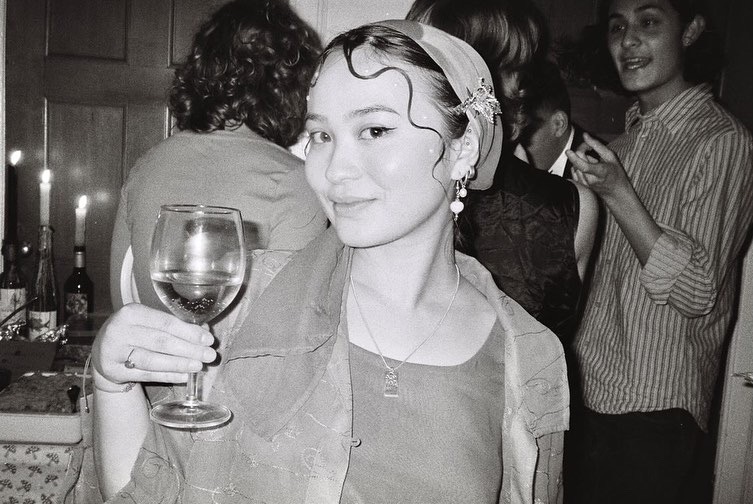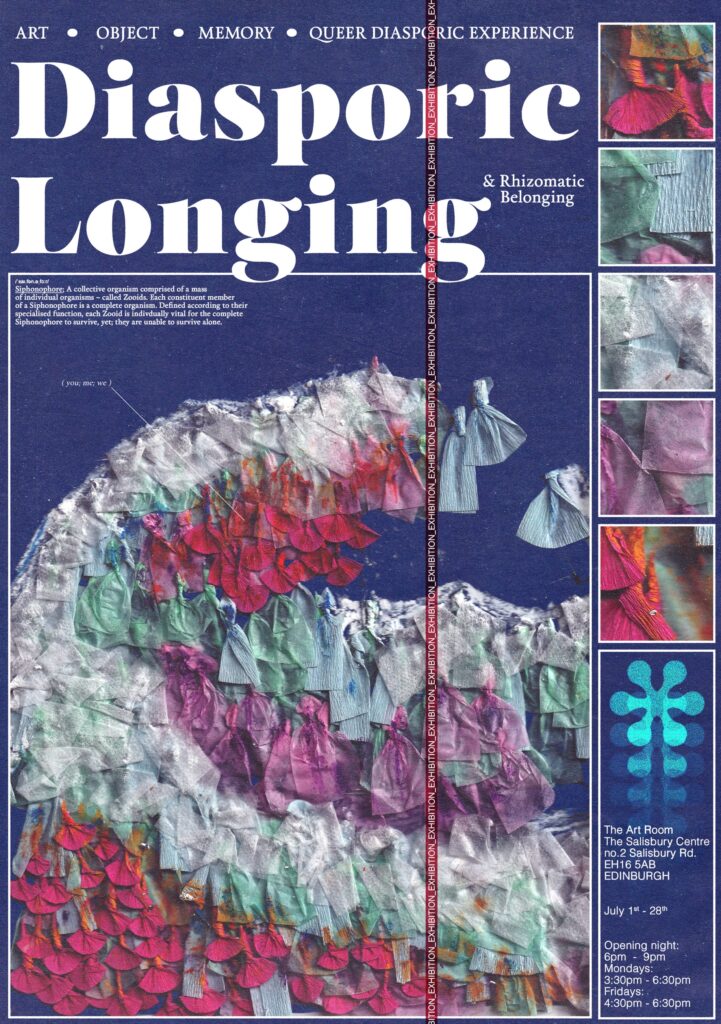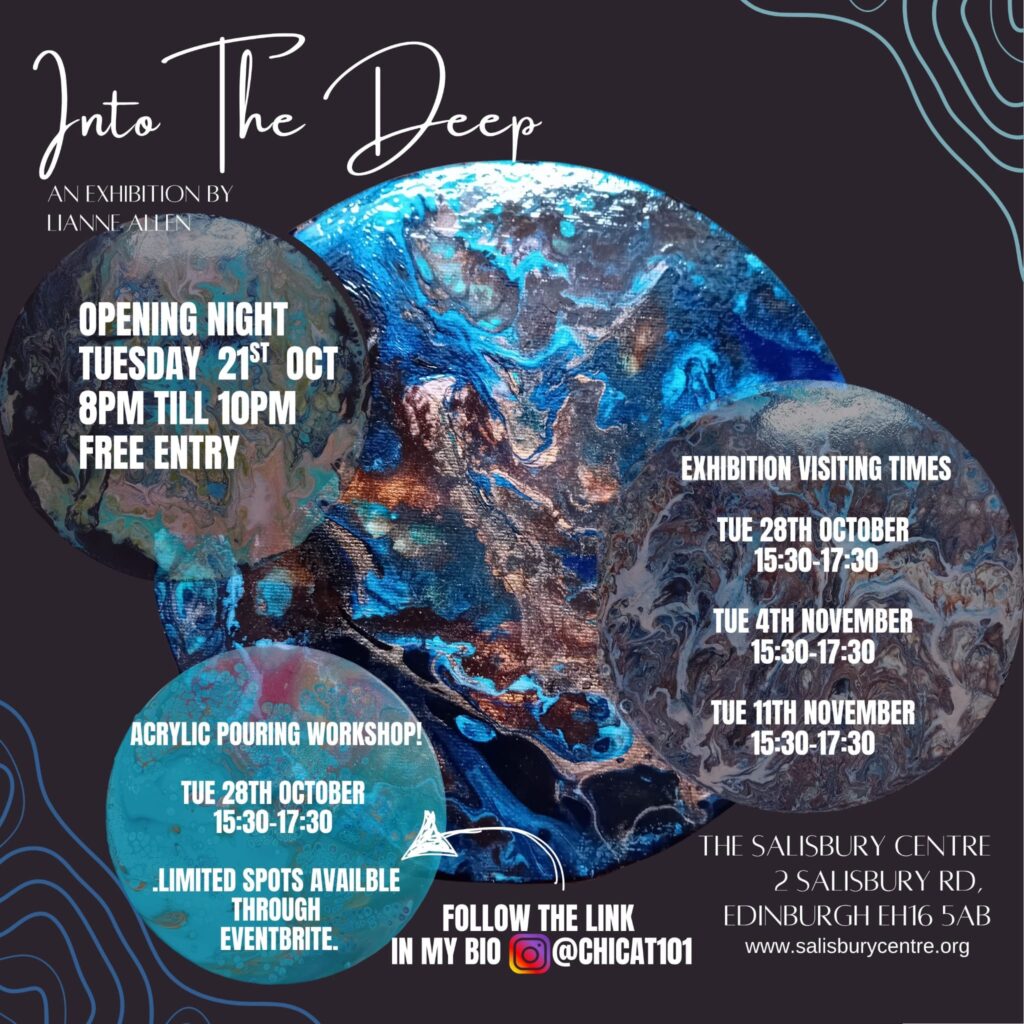
- This event has passed.
Diasporic Longing & Rhizomatic Belonging (Exhibition)

About the exhibition
Opening times throughout July
- Mondays 3:30 – 6:30pm
- Fridays 4:30 – 6:30pm
This exhibition translates my recent dissertation, rooted in arts-based methods/research, into a multisensory, collaborative display. It explores how queer diasporic individuals in Scotland use personal objects – such as a great-grandmother’s ring or a rice bowl – as conduits for negotiating diasporic identity and reimagining belonging and memory in the face of cultural displacement.
At its core is the concept of diasporic longing (a term offered by a participant), a phrase I understand as a sensuous, persistent ache that permeates my participants’ experiences of frayed histories and ephemeral homes. Drawing on ecological metaphors such as the rhizome (multi-rooted identity) and the siphonophore (a collective organism of interconnected parts), the exhibition reimagines personal objects and art as expression – as sites of rupture, transformation, and creative reassembly. In doing so, it challenges and uproots traditional narratives and invites new ways to reimagine and perform selfhood.
The exhibition features artworks by participants alongside my own visual responses – including collage, cyanotypes, photography, and a small video installation. It is an ode to queer immigrant and refugee communities in Scotland who have made me feel at home.
About the artist

Marlene Ayumi Ito is an artist and writer, and a soon-to-be graduate in Social Anthropology & Sociology from the University of Edinburgh. Their work explores queer diasporic identity, memory, and displacement through material culture and art practices. Working primarily with objects, collage, and film, they create installations and artworks that collapse personal narrative with political and historical resonance. Marlene’s practice gestures toward a horizon of liberation, envisioning freedom for Palestine, Congo, Sudan and the dismantling of imperial and colonial structures that continue to oppress.
Donations
The Salisbury Centre has generously offered this space free of charge. Donations are warmly welcomed and help support the Centre’s ability to continue hosting local artists, teachers, and community groups.
40% of donations go to the Centre and 60% to the exhibition organizer.
To donate:
- Bring cash during your visit
- Pay by card at the Centre (tap the pen icon on the screen to add “creative connections” as the reference)
- Donate online at www.salisburycentre.org/donate using “creative connections” as the reference
This is an invitation to practice Dana (generosity). Please give what you can – no one is turned away for lack of funds.


